| Listing 1 - 10 of 12 | << page >> |
Sort by
|
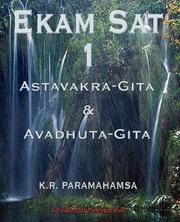
ISBN: 1281923567 1590958853 9786611923563 9781590958858 9781590958889 9781281923561 661192356X Year: 2008 Publisher: Friendswood, Tex. TotalRecall Publications
Abstract | Keywords | Export | Availability | Bookmark
 Loading...
Loading...Choose an application
- Reference Manager
- EndNote
- RefWorks (Direct export to RefWorks)
Book
ISBN: 9780199238811 0199238812 9780199595556 0199595550 1281852821 9786611852825 0191553522 0191716499 Year: 2008 Publisher: Oxford Oxford university press
Abstract | Keywords | Export | Availability | Bookmark
 Loading...
Loading...Choose an application
- Reference Manager
- EndNote
- RefWorks (Direct export to RefWorks)
This landmark study examines the role played by the rediscovery of the writings of the ancient atomists, Epicurus and Lucretius, in the articulation of the major philosophical systems of the seventeenth century, and, more broadly, their influence on the evolution of natural science and moral and political philosophy. The target of sustained and trenchant philosophical criticism by Cicero, and of opprobrium by the Christian Fathers of the early Church, for its unflinching commitment to the absence of divine supervision and the finitude of life, the Epicurean philosophy surfaced again in the period of the Scientific Revolution, when it displaced scholastic Aristotelianism. Both modern social contract theory and utilitarianism in ethics were grounded in its tenets. Catherine Wilson shows how the distinctive Epicurean image of the natural and social worlds took hold in philosophy, and how it is an acknowledged, and often unacknowledged presence in the writings of Descartes, Gassendi, Hobbes, Boyle, Locke, Leibniz, Berkeley. With chapters devoted to Epicurean physics and cosmology, the corpuscularian or "mechanical" philosophy, the question of the mortality of the soul, the grounds of political authority, the contested nature of the experimental philosophy, sensuality, curiosity, and the role of pleasure and utility in ethics, the author makes a persuasive case for the significance of materialism in seventeenth-century philosophy without underestimating the depth and significance of the opposition to it, and for its continued importance in the contemporary world. Lucretius's great poem, On the Nature of Things, supplies the frame of reference for this deeply-researched inquiry into the origins of modern philosophy.
Atomism. --- Epicureans (Greek philosophy) --- Materialism. --- Mechanism (Philosophy). --- Philosophy, Modern. --- Epicureans (Greek philosophy). --- Atomism --- Materialism --- Mechanism (Philosophy) --- Philosophy, Modern --- Atomic theory --- Philosophy --- Philosophy, Ancient --- Pluralism --- Modern philosophy --- Mechanistic philosophy --- Philosophy, Mechanistic --- Biology --- Life (Biology) --- Naturalism --- Science --- Vitalism --- Physicalism --- Animism --- Positivism --- Dualism --- Idealism --- Monism --- Realism --- History of philosophy --- Philosophy of science --- Philosophy, Renaissance.
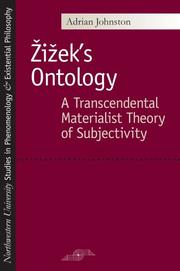
ISBN: 9780810124554 0810124556 9780810124561 0810124564 Year: 2008 Publisher: Evanston Northwestern university press
Abstract | Keywords | Export | Availability | Bookmark
 Loading...
Loading...Choose an application
- Reference Manager
- EndNote
- RefWorks (Direct export to RefWorks)
Slavoj Žižek is one of the most interesting and important philosophers working today, known chiefly for his theoretical explorations of popular culture and contemporary politics. This book focuses on the generally neglected and often overshadowed philosophical core of Žižek’s work—an essential component in any true appreciation of this unique thinker’s accomplishment. His central concern, Žižek has proclaimed, is to use psychoanalysis (especially the teachings of Jacques Lacan) to redeploy the insights of late-modern German philosophy, in particular, the thought of Kant, Schelling, and Hegel. By taking this avowal seriously, Adrian Johnston finally clarifies the philosophical project underlying Žižek’s efforts. His book charts the interlinked ontology and theory of subjectivity constructed by Žižek at the intersection of German idealism and Lacanian theory. Johnston also uses Žižek’s combination of philosophy and psychoanalysis to address two perennial philosophical problems: the relationship of mind and body, and the nature of human freedom. By bringing together the past two centuries of European philosophy, psychoanalytic metapsychology, and cutting-edge work in the natural sciences, Johnston develops a transcendental materialist theory of subjectivity—in short, an account of how more-than-material forms of subjectivity can emerge from a corporeal being. His work shows how an engagement with Žižek’s philosophy can produce compelling answers to today’s most vexing and urgent questions as inherited from the history of ideas.
Ontology --- Subjectivity. --- Transcendentalism. --- Materialism. --- Idealism, German. --- Ontologie --- Subjectivité --- Transcendantalisme --- Matérialisme --- Idéalisme allemand --- Zizek, Slavoj. --- Subjectivité --- Matérialisme --- Idéalisme allemand --- Žižek, Slavoj. --- Idealism, German --- Materialism --- Subjectivity --- Transcendentalism --- Philosophy --- Philosophy, Modern --- Idealism --- Subjectivism --- Knowledge, Theory of --- Relativity --- Physicalism --- Animism --- Positivism --- Dualism --- Mechanism (Philosophy) --- Monism --- Realism --- German idealism --- Žižek, Slavoj --- Žižek, Slavoj.
Book
ISBN: 1442688513 9781442688513 9780802098559 080209855X 9781442692930 1442692936 Year: 2008 Publisher: Toronto
Abstract | Keywords | Export | Availability | Bookmark
 Loading...
Loading...Choose an application
- Reference Manager
- EndNote
- RefWorks (Direct export to RefWorks)
In his influential philosophical work Insight, Bernard Lonergan made the intriguing and problematic claim that "the polymorphism of consciousness is the one and only key to philosophy." In Lonergan on Philosophical Pluralism, Gerard Walmsley examines Lonergan's many discussions of the different forms of human consciousness, as well as his sustained responses to the problems raised by philosophical and cultural pluralism. Looking closely at Lonergan's thoughts on patterns of experience, different levels of consciousness, and the differentiations of consciousness that occur through the historical development of individual human minds, Walmsley shows how polymorphic consciousness allows individuals to understand a range of philosophical positions. By understanding this range, an individual is able to sympathetically and critically appreciate different positions. Testing the strength of Lonergan's position, he directly engages postmodern thought and comparative philosophy to demonstrate that Lonergan's account of polymorphic consciousness provides a better basis for a positive evaluation of difference than does the work of many postmodern thinkers. An ambitious and soundly argued work, Lonergan on Philosophical Pluralism is both an illuminating study of Lonergan's thought, and an intriguing proposal for how difference and pluralism can be understood.
Pluralism. --- Difference (Philosophy) --- Consciousness. --- Apperception --- Mind and body --- Perception --- Philosophy --- Psychology --- Spirit --- Self --- Monadology --- Monism --- Reality --- Lonergan, Bernard J. F. --- Consciousness --- Pluralism --- 1 LONERGAN, BERNARD --- 1 LONERGAN, BERNARD Filosofie. Psychologie--LONERGAN, BERNARD --- Filosofie. Psychologie--LONERGAN, BERNARD --- Lonergan, Bernardo --- Lonergan, Bernard --- Lonergan, B. --- Lonergan, B. J. F. --- Lonergan, Bernard J. F.
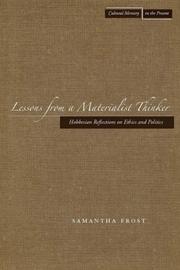
ISBN: 9780804757478 9780804757485 0804757488 Year: 2008 Publisher: Stanford (Calif.) Stanford university press
Abstract | Keywords | Export | Availability | Bookmark
 Loading...
Loading...Choose an application
- Reference Manager
- EndNote
- RefWorks (Direct export to RefWorks)
General ethics --- Hobbes, Thomas --- Ethics --- Materialism --- Political science --- Political philosophy --- Physicalism --- Animism --- Philosophy --- Positivism --- Dualism --- Idealism --- Mechanism (Philosophy) --- Monism --- Realism --- Deontology --- Ethics, Primitive --- Ethology --- Moral philosophy --- Morality --- Morals --- Philosophy, Moral --- Science, Moral --- Values --- Gobbs, Tomas, --- Hobbs, Thomas, --- Gobbes, Tomas, --- T. H. --- H., T. --- Hobs, Thomas, --- Hobbes, --- Hobbes, Thom. --- Hobbius, Thomas, --- Hobbuzu, Tomasu, --- Huobusi, --- Hobbs, Tho. --- הובס, תומס, --- 霍布斯, --- ホッブズ, トマス,
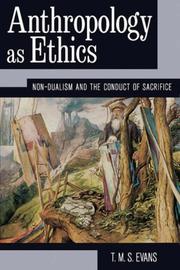
ISBN: 9781845452247 Year: 2008 Publisher: New York Berghahn
Abstract | Keywords | Export | Availability | Bookmark
 Loading...
Loading...Choose an application
- Reference Manager
- EndNote
- RefWorks (Direct export to RefWorks)
Philosophical anthropology --- General ethics --- Ethnology. Cultural anthropology --- Anthropology --- Dualism --- Ethics --- Sacrifice --- #SBIB:39A3 --- Burnt offering --- Worship --- Deontology --- Ethics, Primitive --- Ethology --- Moral philosophy --- Morality --- Morals --- Philosophy, Moral --- Science, Moral --- Philosophy --- Values --- Idealism --- Materialism --- Monism --- Occasionalism --- Realism --- Antropologie: geschiedenis, theorie, wetenschap (incl. grondleggers van de antropologie als wetenschap)
Book
ISBN: 9780754673712 0754673715 9781315247380 9781351912877 9781138254176 Year: 2008 Publisher: Aldershot Ashgate
Abstract | Keywords | Export | Availability | Bookmark
 Loading...
Loading...Choose an application
- Reference Manager
- EndNote
- RefWorks (Direct export to RefWorks)
European law --- European Union --- Law --- Legal polycentricity --- Pluralism. --- Droit --- Pluralisme juridique --- Pluralisme (Philosophie) --- International unification. --- Unification internationale --- European Union countries --- Pays de l'Union européenne --- Economic integration. --- Intégration économique --- -Legal polycentricity --- -Pluralism --- 341.2422 --- Acts, Legislative --- Enactments, Legislative --- Laws (Statutes) --- Legislative acts --- Legislative enactments --- Jurisprudence --- Legislation --- Monadology --- Monism --- Philosophy --- Reality --- Bijuralism --- Legal pluralism --- Pluralism, Legal --- Polycentric law --- Polycentricity, Legal --- Conflict of laws --- International unification --- -EU countries --- Euroland --- Europe --- Economic integration --- -Economic integration --- Pays de l'Union européenne --- Intégration économique
Book
ISBN: 0980305241 0980544084 Year: 2008 Publisher: Melbourne : re.press,
Abstract | Keywords | Export | Availability | Bookmark
 Loading...
Loading...Choose an application
- Reference Manager
- EndNote
- RefWorks (Direct export to RefWorks)
Sam Gillespie's The Mathematics of Novelty presents a new account of Alain Badiou and Gilles Deleuze, identifying conceptual impasses in their philosophical projects and proposing a way through by recourse to the psychoanalysis of Jacques Lacan.
Mathematics. --- Philosophy. --- Ontology --- Materialism --- Metaphysics --- Philosophy --- Mathematics --- Philosophy & Religion --- Math --- Mental philosophy --- Physicalism --- Being --- Science --- Humanities --- God --- Philosophy of mind --- Animism --- Positivism --- Dualism --- Idealism --- Mechanism (Philosophy) --- Monism --- Realism --- Necessity (Philosophy) --- Substance (Philosophy) --- Badiou, Alain. --- Deleuze, Gilles, --- Deleuze, G. --- Delëz, Zhilʹ, --- Dūlūz, Jīl, --- Delezi, Jier, --- دولوز، جيل --- Badiou, Alain --- Badiou, A. --- Badiu, Alen, --- Badiou, Alan, --- Bādiyū, Ālān, --- Бадиу, Ален, --- باديو, آلان, --- באדיו, אלן, --- アラン・バディウ, --- 巴迪欧, 阿兰,
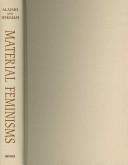
ISBN: 0253013607 9780253013606 9780253349781 0253349788 9780253219466 0253219469 Year: 2008 Publisher: Bloomington, Ind. Indiana University Press
Abstract | Keywords | Export | Availability | Bookmark
 Loading...
Loading...Choose an application
- Reference Manager
- EndNote
- RefWorks (Direct export to RefWorks)
Harnessing the energy of provocative theories generated by recent understandings of the human body, the natural world, and the material world, Material Feminisms presents an entirely new way for feminists to conceive of the question of materiality. In lively and timely essays, an international group of feminist thinkers challenges the assumptions and norms that have previously defined studies about the body. These wide-ranging essays grapple with topics such as the material reality of race, the significance of sexual difference, the impact of disability experience, and the complex interaction between nature and culture in traumatic events such as Hurricane Katrina. By insisting on the importance of materiality, this volume breaks new ground in philosophy, feminist theory, cultural studies, science studies, and other fields where the body and nature collide.
Human body. --- Feminist theory. --- Body, Human --- Human beings --- Body image --- Human anatomy --- Human physiology --- Mind and body --- Feminism --- Feminist philosophy --- Feminist sociology --- Theory of feminism --- Philosophy --- Etnicitet. --- Feminismus. --- Feministisk teori --- Feministisk teori. --- Kropp. --- Körper. --- Naturkatastrofer --- Utvecklingslära --- Filosofi --- Beteende --- Könsolikheter. --- Feminism. --- Political philosophy. Social philosophy --- Philosophical anthropology --- Materialism. --- Physicalism --- Animism --- Positivism --- Dualism --- Idealism --- Mechanism (Philosophy) --- Monism --- Realism --- Feminist Ethics --- Ethics, Feminist --- Women's Rights --- Nature --- Body --- Theory --- Biotechnology --- Book
Book
ISBN: 1282458280 9786612458286 1400827450 9781400827459 Year: 2008 Publisher: Princeton Princeton University Press
Abstract | Keywords | Export | Availability | Bookmark
 Loading...
Loading...Choose an application
- Reference Manager
- EndNote
- RefWorks (Direct export to RefWorks)
Explaining the Cosmos is a major reinterpretation of Greek scientific thought before Socrates. Focusing on the scientific tradition of philosophy, Daniel Graham argues that Presocratic philosophy is not a mere patchwork of different schools and styles of thought. Rather, there is a discernible and unified Ionian tradition that dominates Presocratic debates. Graham rejects the common interpretation of the early Ionians as "material monists" and also the view of the later Ionians as desperately trying to save scientific philosophy from Parmenides' criticisms. In Graham's view, Parmenides plays a constructive role in shaping the scientific debates of the fifth century BC. Accordingly, the history of Presocratic philosophy can be seen not as a series of dialectical failures, but rather as a series of theoretical advances that led to empirical discoveries. Indeed, the Ionian tradition can be seen as the origin of the scientific conception of the world that we still hold today.
Philosophie ancienne. --- Sciences anciennes. --- Sciences --- Philosophy, Ancient. --- Science, Ancient. --- Science --- Natural science --- Natural sciences --- Science of science --- Ancient philosophy --- Greek philosophy --- Philosophy, Greek --- Philosophy, Roman --- Roman philosophy --- Ancient science --- Science, Primitive --- Histoire. --- History. --- History --- Pre-Socratic philosophers. --- Pre-Socratics --- Presocratic philosophers --- Presocratics --- Philosophers --- Absolute (philosophy). --- Alcmaeon of Croton. --- Alexander of Aphrodisias. --- Allusion. --- Ambiguity. --- Analogy. --- Anaxagoras. --- Anaximander. --- Anaximenes. --- Antidosis. --- Apeiron (cosmology). --- Aristotle. --- Atomism. --- Causality. --- Chemical element. --- Chemical formula. --- Classical element. --- Coeus. --- Concept. --- Contradiction. --- Cosmogony. --- Cratylus. --- Crius. --- Cronus. --- Democritus. --- Diogenes of Apollonia. --- Dualism (philosophy of mind). --- Dualism. --- Eleatics. --- Emergence. --- Empedocles. --- Empirical evidence. --- Essence. --- Existence. --- Explanandum. --- Explanation. --- Explication. --- Fallacy. --- First principle. --- Four causes. --- Greek Philosophy. --- Hippias. --- Hypothesis. --- Ignoratio elenchi. --- Inference. --- Inquiry. --- Instance (computer science). --- Isocrates. --- Leucippus. --- Lucretius. --- Material monism. --- Meteorology. --- Monism. --- Multitude. --- Mythology. --- Natural philosophy. --- Natural science. --- On Generation and Corruption. --- On the Heavens. --- Ontology. --- Ousia. --- Parmenides. --- Peripatetic school. --- Phenomenon. --- Philolaus. --- Philosopher. --- Philosophical theory. --- Philosophy. --- Pre-Socratic philosophy. --- Premise. --- Principle. --- Process philosophy. --- Prose. --- Pythagoreanism. --- Quantity. --- Rarefaction. --- Reality. --- Reason. --- Science. --- Scientific method. --- Scientist. --- Sophist. --- Substance theory. --- Teleology. --- Test theory. --- The Philosopher. --- Theogony. --- Theophrastus. --- Theoretical physics. --- Theory of Forms. --- Theory of change. --- Theory. --- Thomas Kuhn. --- Thought. --- Timaeus (dialogue). --- Trace Amounts. --- Treatise. --- Unity of opposites. --- World view. --- Xenophanes.
| Listing 1 - 10 of 12 | << page >> |
Sort by
|

 Search
Search Feedback
Feedback About UniCat
About UniCat  Help
Help News
News